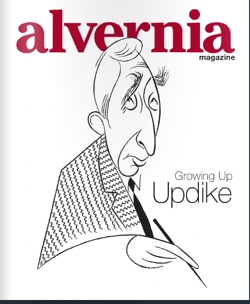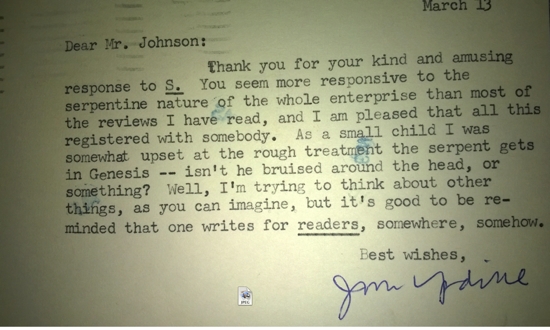First Person Singular focuses on a January 14 blog post by Jon Busch titled “Getting Over Updike,” which begins,
“John Updike was a living legend around Gordon College. He lived mere miles from our tiny campus, and swapping tales of ‘Updike sightings’ was a common pastime among English majors.”
Updike “encounters” were apparently just as common, and Busch shares several humorous anecdotes, along with his somewhat embarrassed reaction to A Month of Sundays.
He writes, “Regardless of the absurdity and vulgarity of A Month of Sundays, I do wish we Gordonites had not irrevocably offended Updike all those years ago. His ‘Seven Stanzas at Easter’ alone is adequate atonement for a lifetime of bad sex writing.”
Gordon College is a Christian school in Wenham, Massachusetts. “Legend has it (and I have no way to verify this) that an intrepid English professor in the late seventies or early eighties struck up a friendship with Updike and asked him to come speak on campus. Updike accepted the invitation, but had to be ‘disinvited’ when the president of the college famously declared, ‘I don’t want that pornographer anywhere near our campus.
“Decades later, an Updike convocation was still off the table. Apparently, the man knew how to hold a grudge. We English majors held a grudge as well, against that ignorant, foolish president who damned us to an Updike-less, and thus incomplete, education.”
It was only after reading A Month of Sundays many years later that Busch says he developed “sympathy for the old president’s position.”




